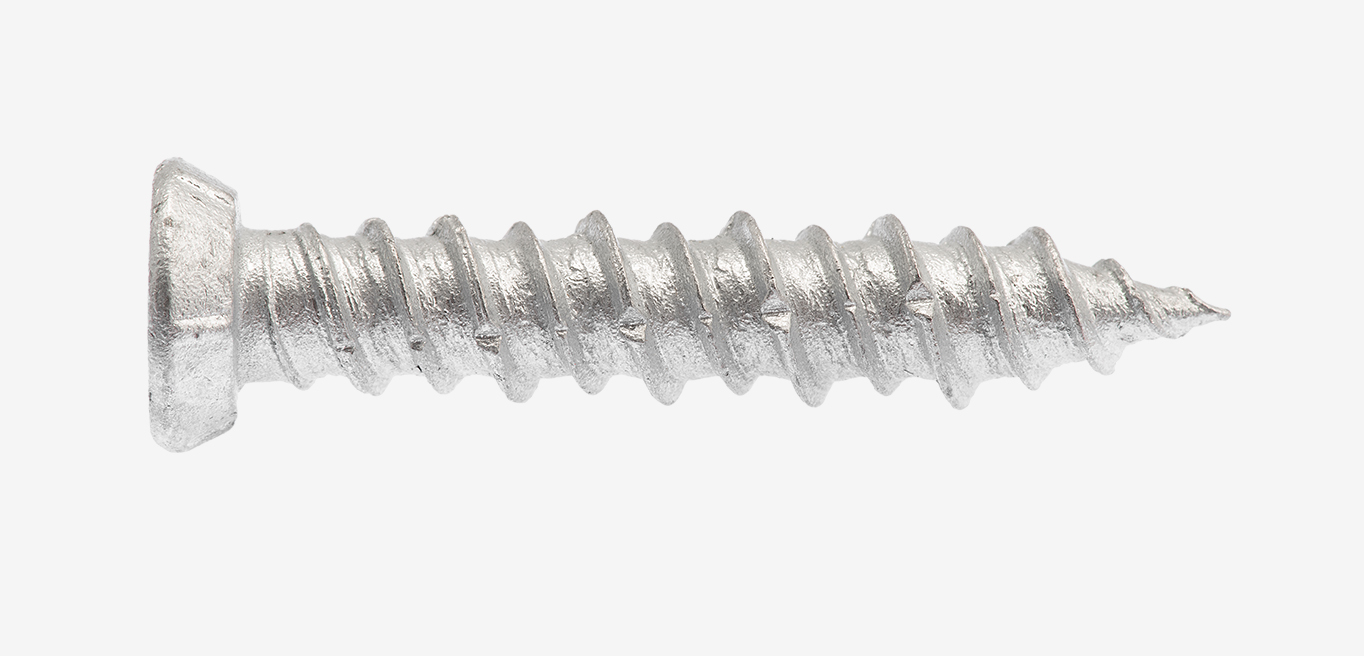Concrete or masonry screws, commonly referred to as masonry anchors or Tapcon screws, are an essential component in construction and home improvement projects that involve affixing materials to concrete, brick, or masonry surfaces. These specialised fasteners are engineered to provide durability, reliability, and strength. This article delves into the design characteristics, benefits, and versatile applications of concrete or masonry screws.
Design Characteristics
Concrete or masonry screws are meticulously designed to anchor into hard, brittle surfaces without causing damage or requiring special inserts like wall plugs or expansion shields. Typically made from carbon steel or stainless steel, these screws are hardened to resist snapping during installation. The screws feature a high-low thread pattern, with alternating high and low threads. The high threads cut into the masonry, while the low threads remove debris from the drilled hole, ensuring a clean, efficient fastening process.
Another key aspect of their design is the sharp, hardened tip, often referred to as a “self-tapping” tip. This design allows the screws to bite into the concrete effectively, eliminating the need for a pilot hole in some lighter applications. Some screws are also coated with a durable, corrosion-resistant material, like zinc or a ceramic coating, to withstand the harsh elements often encountered in outdoor or industrial environments.
Benefits of Concrete or Masonry Screws
Durability and Strength
One of the primary benefits of concrete or masonry screws is their durability. They are capable of withstanding significant loads and stresses, making them ideal for heavy-duty applications. The unique threading and self-tapping design contribute to their strength, allowing them to maintain integrity in various environmental conditions, including temperature fluctuations and moisture exposure.
Ease of Use
Concrete screws are easy to install and remove. Unlike traditional methods that require hammering anchors into pre-drilled holes and can potentially lead to misalignment or damage, these screws can be driven directly into drilled holes using a standard drill. This straightforward process not only saves time but also reduces labour costs in commercial projects.
Versatility
The versatile nature of masonry screws makes them suitable for a wide range of applications. They can be used to attach frames, machinery, road signs, and much more to concrete, brick, or masonry surfaces. Their use is not limited to exterior applications; they are also effective indoors for installing shelving, railings, and other fixtures.
Applications
Construction Industry
In the construction industry, concrete screws are commonly used for securing wooden or metal frames to concrete foundations or attaching items to masonry walls. They are particularly valuable in seismic retrofitting, where existing structures are upgraded to be more resistant to earthquake shaking.
Home Improvement and DIY Projects
For home improvement enthusiasts and DIYers, masonry screws are indispensable for projects like mounting TV brackets on brick walls, installing cabinets and shelving on concrete walls, or securing wooden ledges to masonry surfaces. Their strength and ease of use make them a popular choice for projects that require a reliable anchoring solution.
Industrial Applications
Industrial settings often utilise concrete screws for fixing heavy machinery to concrete floors or attaching structural components to masonry walls. Their robust nature ensures that they can handle the heavy load and vibrations typical in industrial environments.
Finally, concrete or masonry screws are a testament to the innovation in modern fastening technology, offering unmatched durability, strength, and versatility. Whether used in massive construction projects, industrial applications, or simple home improvements, these screws provide a reliable and efficient solution for securing materials to tough surfaces.







Leave a Reply